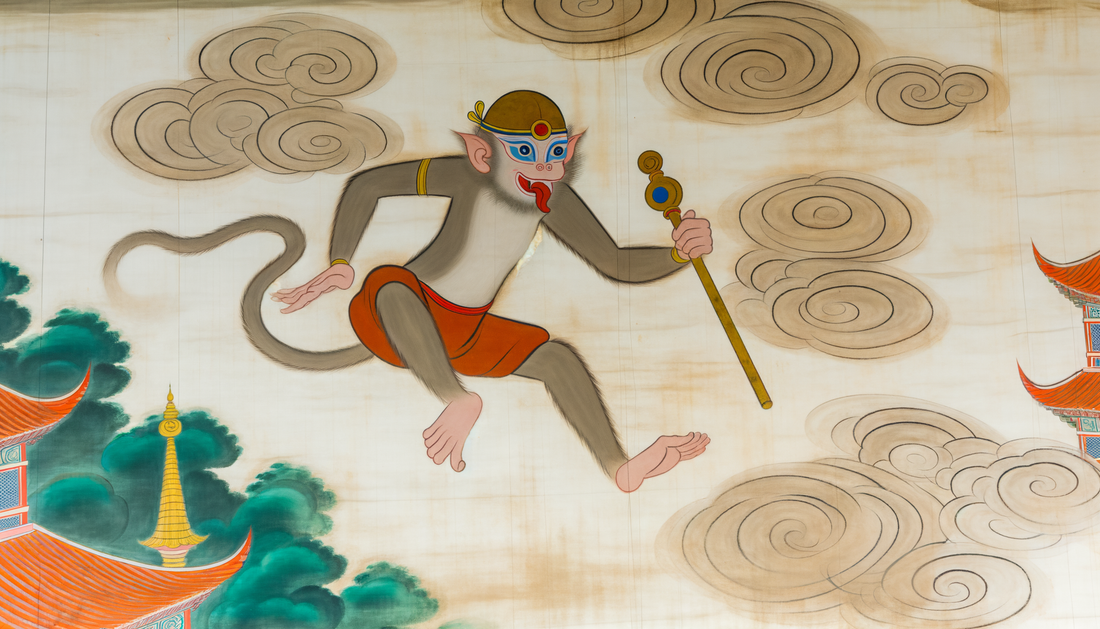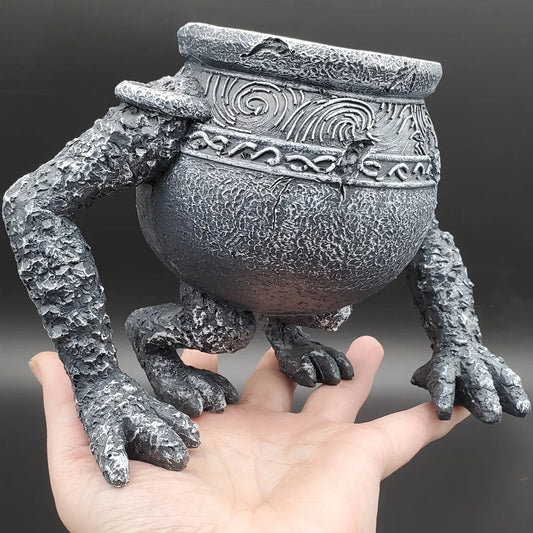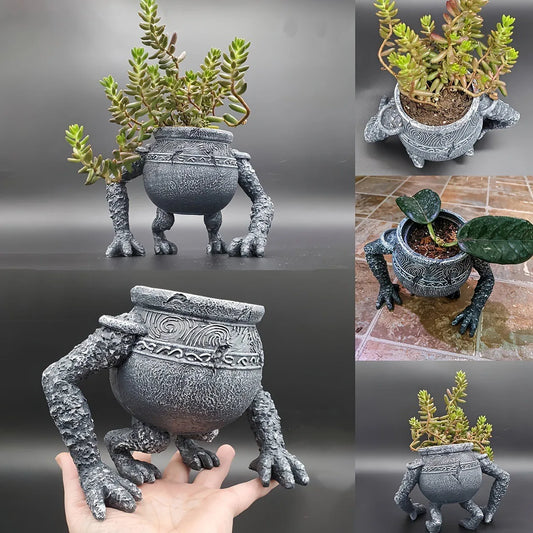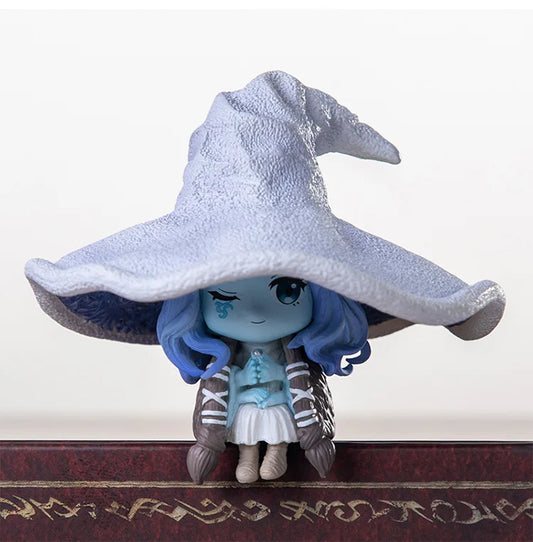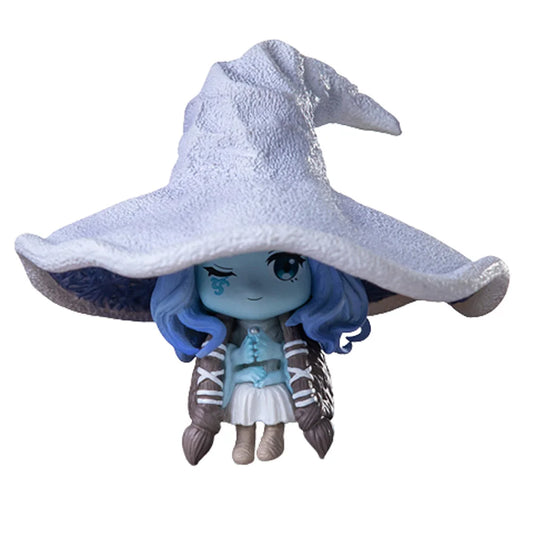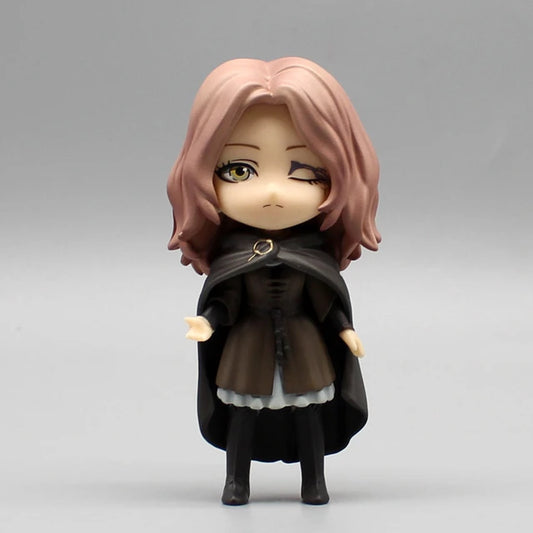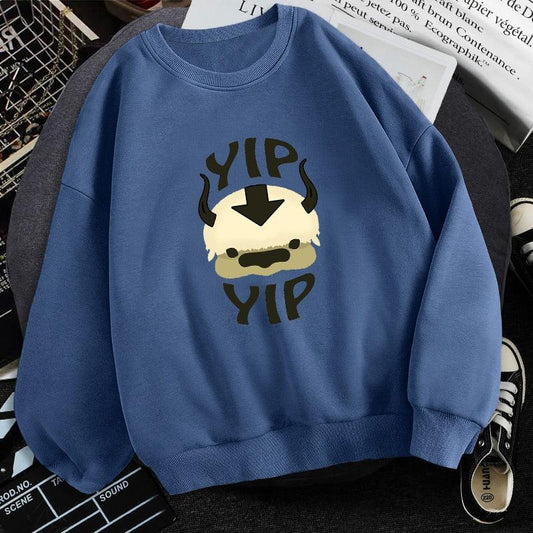Sun Wukong: The Legendary Monkey King's Enduring Legacy in Chinese Mythology and Global Culture
In the vast tapestry of Chinese mythology, few figures loom as large or captivate the imagination quite like Sun Wukong, the legendary Monkey King. With his mischievous grin, extraordinary powers, and complex personality, Sun Wukong has transcended his origins to become a global cultural icon. This blog post delves into the fascinating world of the Monkey King, exploring his significance in Chinese mythology, his role in the classic novel "Journey to the West," and his enduring popularity in contemporary media and culture.
The Origins of a Legend: Sun Wukong's Historical Roots
Sun Wukong's origins are as mysterious and magical as the character himself. Born from a stone egg on the Mountain of Flowers and Fruit, his legend is a tapestry woven from various cultural threads.
Influences from Indian and Chinese Folklore
The character of Sun Wukong is believed to be a composite of various mythological and historical influences. According to scholar Meir Shahar, Sun Wukong may have roots in earlier legends, such as the story of Huili, a Buddhist master with a magical monkey disciple. This theory suggests a blending of Indian and Chinese folkloric elements in the creation of the Monkey King.
The influence of Hindu mythology, particularly the monkey god Hanuman from the epic Ramayana, is also evident in Sun Wukong's character. Both figures share superhuman strength, the ability to fly, and a role as a devoted protector.
Monkey Worship in Chinese Culture
Sun Wukong's character may also draw inspiration from the tradition of monkey worship in certain Chinese cultures. In some regions of China, monkeys were revered as symbols of wisdom and protection. This cultural backdrop likely contributed to the development of a powerful monkey character in Chinese mythology.
Literary Debut: "Journey to the West"
Sun Wukong's most famous appearance is in the 16th-century Chinese novel "Journey to the West," attributed to Wu Cheng'en. This epic tale has become one of the most beloved and influential works in Chinese literature, with countless translations and adaptations worldwide.
Sun Wukong's Central Role
In "Journey to the West," Sun Wukong serves as both a protagonist and an antagonist. His journey from a rebellious troublemaker to a devoted disciple forms the heart of the narrative. As a protector of the monk Tang Sanzang on his perilous journey to India to retrieve Buddhist sutras, Sun Wukong's character development showcases themes of redemption, loyalty, and spiritual growth.
The Monkey King's Extraordinary Abilities and Complex Character
Sun Wukong's enduring appeal lies in his unique combination of supernatural powers and all-too-human personality traits.
Supernatural Powers
- Immortality: Sun Wukong achieved immortality through various means, including eating the peaches of immortality and erasing his name from the Book of Life and Death.
- Shape-shifting: He can transform into 72 different animals and objects, a skill that proves invaluable throughout his adventures.
- Cloud Travel: The Monkey King can summon a magical cloud that allows him to fly at incredible speeds.
- Extraordinary Strength: His physical prowess is legendary, capable of lifting his 13,500-jīn (8,100 kg) staff with ease.
- Magical Abilities: Sun Wukong can create clones of himself from his hair and possesses other magical powers, such as the ability to freeze his opponents.
Personality Traits
- Trickster Nature: Sun Wukong's mischievous and cunning personality often leads him into and out of trouble.
- Short Temper: His quick temper and impulsiveness frequently create challenges for himself and his companions.
- Capacity for Enlightenment: Despite his flaws, Sun Wukong demonstrates the ability to grow, learn, and ultimately achieve enlightenment.
Cultural Impact and Modern Adaptations
Sun Wukong's influence extends far beyond the pages of "Journey to the West." His character has permeated various aspects of global culture, inspiring countless adaptations and reinterpretations.
Literature and Art
Sun Wukong has been a popular subject in Chinese art for centuries, depicted in paintings, sculptures, and traditional opera. His story has inspired numerous literary works, both in China and internationally.
Film and Television
The Monkey King has been featured in numerous film and television adaptations. Notable examples include:
- "The Forbidden Kingdom" (2008), featuring Jackie Chan as a character inspired by Sun Wukong
- "The Monkey King" film series (2014-2018), starring Donnie Yen
- Various anime and animated series, including "Dragon Ball," which draws inspiration from Sun Wukong's character for its protagonist, Son Goku
Video Games and Popular Culture
Sun Wukong's influence extends into the realm of video games and popular culture:
- Characters inspired by Sun Wukong appear in games like "League of Legends" and "Dota 2"
- The Monkey King has been referenced in Western TV shows and comics, demonstrating his global appeal
Scholarly Perspectives and Debates
The study of Sun Wukong and "Journey to the West" continues to be a rich field for academic research and debate.
Meir Shahar's Theory on Earlier Influences
Scholar Meir Shahar's work suggests that Sun Wukong's character may have roots in earlier legends and religious traditions. This theory opens up new avenues for understanding the development of Chinese mythology and its interaction with other cultural traditions.
Debates on Authorship
While "Journey to the West" is traditionally attributed to Wu Cheng'en, some scholars debate this authorship. The novel's complex narrative and the incorporation of various mythological and religious elements have led to discussions about its possible multiple authors or long period of development.
Creating a Sun Wukong-Inspired Character for Modern Storytelling
Sun Wukong's enduring popularity makes him an excellent source of inspiration for modern storytellers. Here's how to create a Sun Wukong-inspired character for contemporary narratives:
- Adapt the Origin Story: Create a unique backstory that resonates with modern audiences while maintaining an element of the mythical or supernatural.
- Modernize Supernatural Abilities: Update Sun Wukong's powers for a contemporary setting. For example, his cloud-travel ability could be reimagined as teleportation or super-speed.
- Develop Character Flaws and Growth Opportunities: Like Sun Wukong, give your character clear flaws (e.g., impulsiveness, arrogance) that provide opportunities for growth and development throughout the story.
- Incorporate Relevant Themes: Address modern social or environmental issues through your character's journey, much like how Sun Wukong's story explores themes of redemption and spiritual growth.
- Balance Traditional and Modern Elements: Blend elements of traditional mythology with contemporary storytelling techniques to create a character that feels both timeless and relevant.
FAQ: Understanding Sun Wukong
Q1: How does Sun Wukong's portrayal differ across various cultures?
While Sun Wukong originates from Chinese mythology, his character has been adapted and reinterpreted in various cultures. In Japan, for instance, the character Son Goku in "Dragon Ball" is heavily inspired by Sun Wukong but tailored to fit Japanese storytelling styles and cultural preferences. In Western adaptations, Sun Wukong's mischievous nature is often emphasized, sometimes at the expense of his spiritual journey.
Q2: What is the significance of Sun Wukong's weapon, the Ruyi Jingu Bang?
The Ruyi Jingu Bang is Sun Wukong's iconic weapon, a magical staff that can change size according to its wielder's wishes. It symbolizes Sun Wukong's strength and adaptability. The staff, which he acquired from the Dragon King of the East Sea, weighs 13,500 jin (about 7,960 kg) and represents Sun Wukong's extraordinary power and his ability to overcome seemingly impossible challenges.
Q3: How has Sun Wukong's character influenced modern superhero archetypes?
Sun Wukong's influence on modern superhero archetypes is significant. His combination of supernatural abilities, complex personality, and journey of personal growth has inspired many contemporary superhero characters. Elements of Sun Wukong can be seen in characters who possess great power coupled with mischievous or rebellious personalities, and who undergo significant character development throughout their stories.
Q4: Are there any historical figures believed to have inspired Sun Wukong?
While Sun Wukong is primarily a mythological figure, some scholars suggest that his character may have been inspired by historical figures. One theory proposes a connection to the Tang dynasty Buddhist monk Xuanzang, whose pilgrimage to India serves as the historical basis for "Journey to the West." However, it's important to note that Sun Wukong's character is largely a mythological construct, blending various cultural and religious elements.
Q5: What role does Sun Wukong play in contemporary Chinese culture and identity?
In contemporary Chinese culture, Sun Wukong remains a beloved and significant figure. He is seen as a symbol of Chinese cultural heritage and is often used in cultural diplomacy. Sun Wukong embodies qualities that are valued in Chinese culture, such as cleverness, perseverance, and the capacity for personal growth. His story continues to be taught in schools and adapted into modern media, ensuring his ongoing relevance in shaping Chinese cultural identity.
Challenges and Solutions in Adapting Sun Wukong
Maintaining Cultural Authenticity in Global Adaptations
Challenge: As Sun Wukong's popularity grows globally, there's a risk of cultural appropriation or misrepresentation in adaptations outside of China.
Solution: To address this, filmmakers, writers, and artists should collaborate closely with Chinese cultural experts and artists. This ensures that adaptations remain respectful and true to the character's cultural roots while still appealing to a global audience.
Balancing Traditional Mythology with Modern Storytelling
Challenge: Adapting a character from classical literature to appeal to contemporary audiences while preserving the essence of the original story can be challenging.
Solution: Focus on the universal themes present in Sun Wukong's story, such as personal growth, redemption, and the struggle between individuality and societal expectations. These themes resonate across cultures and time periods. Additionally, emphasize character development to make Sun Wukong relatable to modern audiences while maintaining his mythological aspects.
Ethical Considerations and Best Practices
When adapting or interpreting Sun Wukong's character, it's crucial to consider several ethical aspects:
- Respecting Cultural Heritage: Any adaptation should show respect for the character's place in Chinese cultural heritage. This involves thorough research and consultation with cultural experts.
- Addressing Problematic Elements: Some aspects of the original stories may be considered problematic by modern standards. These should be addressed thoughtfully, either by reinterpreting them or by providing historical context.
- Promoting Cultural Exchange: Use Sun Wukong's story as a means to promote cultural exchange and understanding, highlighting the universal aspects of his journey while also educating audiences about Chinese mythology and culture.
Success Stories: Sun Wukong in Global Media
"Journey to the West" as a Literary Cornerstone
"Journey to the West" remains one of the most popular and influential works of Chinese literature. Its enduring success is evident in its numerous translations and adaptations worldwide. According to a study by the Chinese Academy of Social Sciences, "Journey to the West" has been translated into more than 40 languages and is one of the most widely read Chinese novels internationally.
Global Success of "The Forbidden Kingdom"
The 2008 film "The Forbidden Kingdom," featuring Jackie Chan in a role inspired by Sun Wukong, was a significant international success. The film grossed over $128 million worldwide, demonstrating the global appeal of Sun Wukong-inspired characters. It also served as a gateway for many Western audiences to become familiar with Chinese mythological figures.
Sun Wukong in Video Games
The popularity of Sun Wukong-inspired characters in video games showcases his appeal in modern digital media. For instance, the character Wukong in "League of Legends," inspired by Sun Wukong, has been a popular choice among players since his introduction in 2011. According to Riot Games, Wukong has consistently remained one of the top 50 most-played characters in the game, which boasts millions of players worldwide.
Tools and Resources for Exploring Sun Wukong's Legacy
-
Original Text and Translations:
- "Journey to the West" by Wu Cheng'en (Multiple translations available)
- Anthony C. Yu's complete translation of "Journey to the West" (University of Chicago Press)
-
Academic Studies:
- "The Monkey and the Monk: An Abridgment of The Journey to the West" by Anthony C. Yu
- "The Monkey King in Chinese Mythology" by Meir Shahar
- Visual Art Collections:
-
Online Resources:
- Project Gutenberg's free e-book of "Journey to the West"
- The Monkey King Society website, dedicated to Sun Wukong studies
Conclusion: The Timeless Appeal of the Monkey King
Sun Wukong's journey from a stone-born monkey to an enlightened being continues to captivate audiences worldwide. His complex character, blending mischief with heroism, and his extraordinary abilities have made him a cultural icon that transcends his Chinese origins. As we've explored, Sun Wukong's influence extends far beyond literature, permeating film, television, video games, and popular culture around the globe.
The enduring popularity of Sun Wukong speaks to the universal appeal of his story – a tale of rebellion, redemption, and personal growth. It also highlights the rich tapestry of Chinese mythology and its ability to resonate with diverse audiences. As global interest in Chinese culture continues to grow, Sun Wukong stands as a powerful ambassador, bridging cultural divides through the timeless art of storytelling.
Looking to the future, it's clear that Sun Wukong's journey is far from over. As new generations discover the Monkey King, we can expect to see fresh interpretations and adaptations that both honor his mythological roots and reflect contemporary values and concerns. Whether in literature, film, or emerging forms of media, Sun Wukong's ability to adapt and persist ensures his place in the pantheon of global cultural icons for years to come.
Additional Resources
For those interested in delving deeper into the world of Sun Wukong and Chinese mythology, here are some valuable resources:
- Online Versions of "Journey to the West":
-
Recommended Books:
- "The Monkey King's Amazing Adventures" by Wu Cheng'en, translated by Timothy Richard
- "Chinese Mythology: An Introduction" by Anne Birrell
- "Handbook of Chinese Mythology" by Lihui Yang and Deming An
-
Notable Film and TV Adaptations:
- "A Chinese Odyssey" (1995) starring Stephen Chow
- "The Lost Empire" (2001) TV miniseries
- "The New Legends of Monkey" (2018) Netflix series
By exploring these resources, readers can gain a deeper appreciation for the rich mythology surrounding Sun Wukong and his enduring impact on global culture. Whether you're a longtime fan of the Monkey King or just beginning to discover his legendary tales, the world of Sun Wukong offers endless opportunities for exploration and enjoyment.

